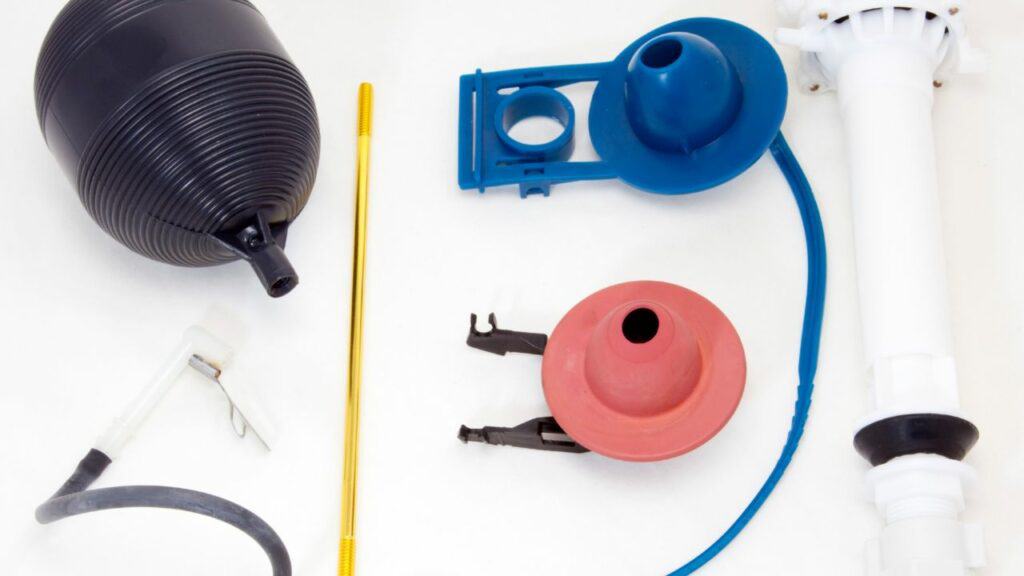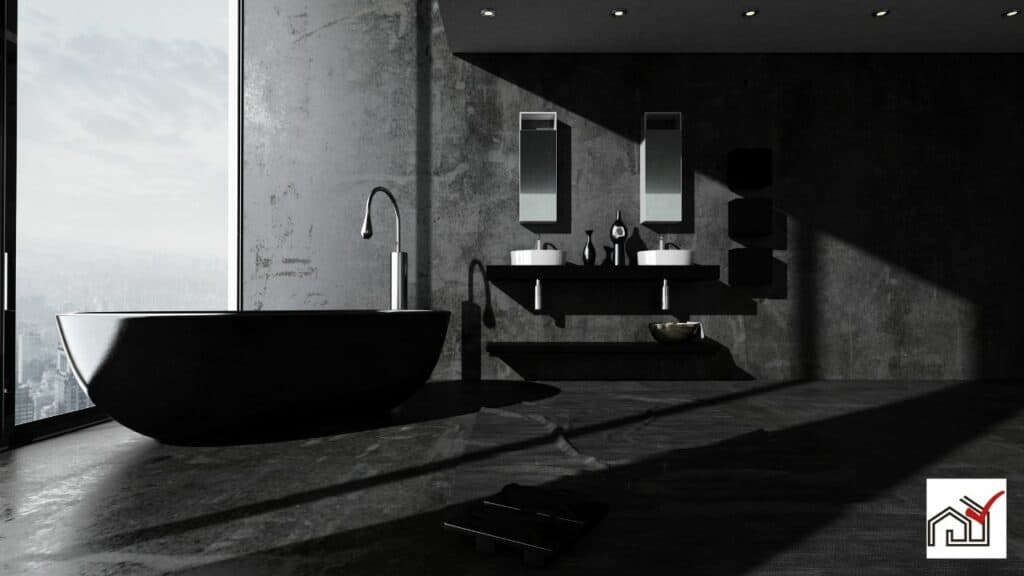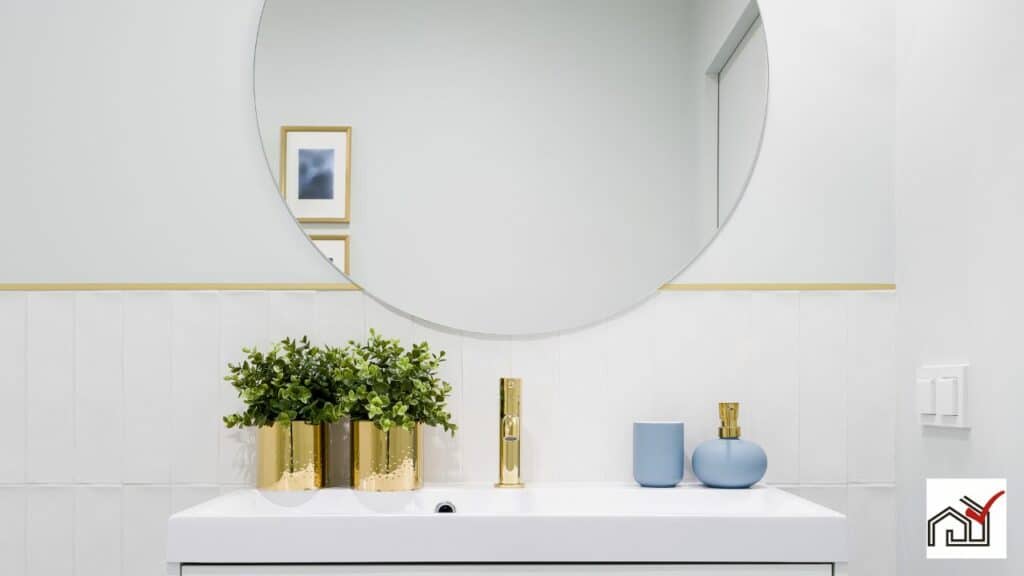A bathroom sink may smell bad for several reasons.
Organic materials like hair, soap, and toothpaste can build up in the drain, leading to bacteria growth.
Poor ventilation or blocked vents can also allow sewer gases to enter the bathroom.
Additionally, mold and mildew from moisture can cause odors.
To fix this, clean the sink and drain regularly, ensure good ventilation, and fix any plumbing problems.
If the smell persists, consult a professional plumber for help.
The Mystery of P-Trap Odors
When a bathroom sink is not used often or during hot weather, the water in the P-trap can evaporate, leading to bad smells. The P-trap's purpose is to trap water to block sewer gases from coming into the house. If it dries out, the barrier is gone, and sewer odor may spread into the bathroom.
The presence of these odors suggests that the plumbing isn't working correctly. A dry P-trap is usually identified by a smell from the sink. To avoid this, keeping water in the P-trap by running the faucet regularly is important.
Clogs can also cause odors if debris blocks the P-trap, allowing gases to escape. Regular cleaning is necessary to prevent blockages.
If P-trap odors persist, hiring a professional drain cleaner is recommended. They can find and fix problems like deep clogs or damaged pipes, which eliminate the odor at its source.
Proper P-trap maintenance is essential for a clean-smelling bathroom.
Biofilm: Bacteria's Breeding Ground
Biofilm is a common cause of bad odors in bathroom sinks. It is a slimy layer that forms on surfaces where bacteria can grow, such as inside plumbing. Biofilm sticks to pipe linings and drains, providing a place for bacteria to feed on organic materials like soap, hair, and skin flakes. As the bacteria break down these materials, they release smelly compounds.
Simply clearing visible debris from a drain will not remove the biofilm. Due to its slimy nature, biofilm can resist water and light cleaning. To effectively clean a drain and eliminate odors, one may need to use enzymatic cleaners. These cleaners contain enzymes that dissolve the biofilm, disrupting the bacteria's living environment. For extensive biofilm buildup, professional cleaning services with specialized tools may be necessary.
Regular cleaning and disinfecting of the sink and drain, along with occasional use of a cleaner that targets biofilm, can prevent its formation and the associated bad smells.
Plumbing Issues and Sewer Gases
Faulty plumbing can lead to sewer gas leaks, causing a bad smell from bathroom sinks. These gases can be harmful and should be fixed quickly.
The bathroom drain has a P-trap, which should hold water to block sewer gases. Problems like a dry P-trap from lack of use or evaporation, or a clogged P-trap that stops water flow and collects waste, can let gases enter your home.
A broken vent pipe can also cause these smells. This pipe balances air pressure in the pipes and releases gases outside. If it's blocked or damaged, gases might come up through the sink.
To resolve these issues, it's best to hire a professional to clean or fix the P-trap and check the vent pipe. Regular plumbing checks can prevent these problems, keeping the bathroom smelling clean.
Clogged Drains: A Common Culprit
Clogged drains are a common cause of bad smells in bathrooms. This is often due to debris such as soap scum, hair, and food particles accumulating and decomposing. The overflow drain can also become clogged, contributing to unpleasant odors. Regular cleaning of the overflow can prevent this.
To clear drains, a mixture of baking soda and vinegar followed by hot water can be helpful. This mixture can remove minor clogs and neutralize smells. However, for tougher blockages, commercial drain cleaners might be needed.
For serious or recurrent clogs, it is best to consult professional plumbers. They have the necessary tools and expertise to remove clogs effectively. Additionally, they can offer maintenance tips to prevent future issues.
To keep a bathroom smelling clean, it is important to promptly address clogged drains and practice regular cleaning. By avoiding clogs and seeking professional help when needed, you can maintain a fresh bathroom environment.
Mold and Mildew Infestations
Mold and mildew often cause persistent bad smells in bathroom sink drains due to their preference for moist conditions. To remove these odors, regular cleaning and maintenance are necessary.
Using a mix of baking soda and vinegar can help eliminate mold and mildew. Additionally, regularly flushing the pipes with hot water can kill spores and hinder their growth.
Proper ventilation also plays a vital role in preventing mold and mildew by reducing humidity in the bathroom. Maintaining good hygiene and ensuring adequate airflow are essential to keeping bathroom sinks and plumbing systems odor-free.
Ventilation Woes in Plumbing
Inadequate ventilation in plumbing can lead to persistent odors from bathroom sinks. If you notice a bad smell from your sink, it may be due to a problem with the venting system.
A properly functioning ventilation system allows sewer gases to escape through a vent stack, but if this is blocked, gases can back up into your drains, causing an odor.
To resolve this, check the vent stack for blockages such as bird's nests, leaves, or debris and clear them to restore airflow and remove the smell. Additionally, if you use a garbage disposal, poor ventilation can trap the smell of decomposing food particles. Regular cleaning and maintenance, as well as drain cleaners, can help prevent smells.
If the P-trap and aerator are clean and there's still an odor, it may be time to inspect the ventilation system. A plumbing professional can identify and fix any issues to ensure your bathroom is odor-free and the plumbing system works well.
Persistent Odor: When to Worry
A persistent odor from a bathroom sink can indicate plumbing issues. If boiling water and air fresheners do not remove the smell, there might be a more serious problem. A common cause is a clogged or dry P-trap, which can release sewer gases if not functioning properly. In hot weather, the water in the P-trap can evaporate, so it's important to check and maintain it.
For sinks that are rarely used, the P-trap can dry out, so running water occasionally is necessary to keep the seal intact. If the smell remains after these measures, the issue could be related to venting or a blockage further in the pipes.
At this point, it is recommended to contact a professional plumber to identify and fix the problem. Delaying action can result in more significant issues. Prompt attention to a persistent odor is crucial to maintain a healthy and clean home environment.





